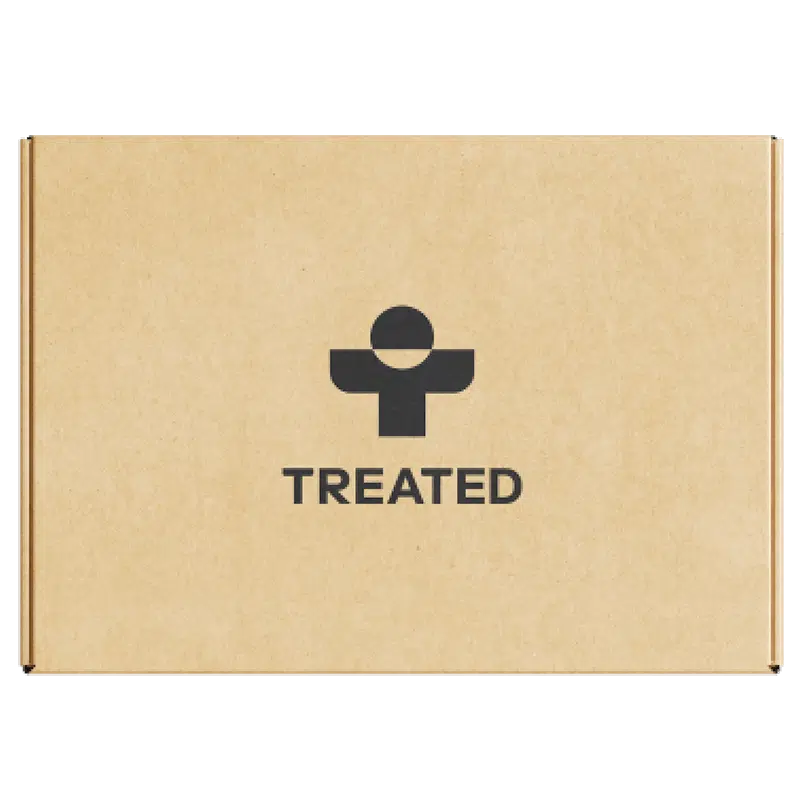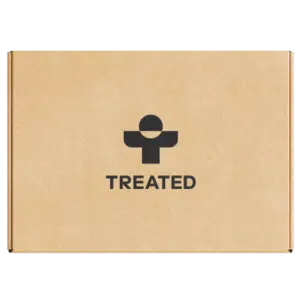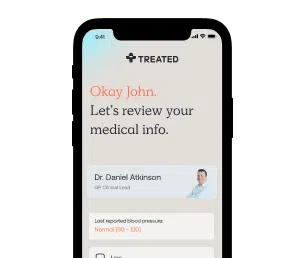Daily tablet that prevents malaria from developing.


Atovaquone/Proguanil tablet is the generic form of a daily malaria prevention treatment you may have heard of called Malarone, or the over-the-counter version, Maloff Protect. It gives highly effective protection against malaria.
Order Atovaquone/Proguanil online with us and get it delivered as quickly as one working day.
Atovaquone/Proguanil is a type of medicine called an antimalarial. It contains two active ingredients, atovaquone and proguanil hydrochloride. It’s used to both treat and prevent malaria. You should start taking it two days before you start travelling to countries where there’s a high risk of malaria (mainly tropical countries).
Malaria is spread by infected mosquitoes that carry a parasite (called Plasmodium falciparum) that bite and pass it into the bloodstream. Atovaquone/Proguanil works to kill the parasite. On top of taking antimalarial medicine, you should be proactive about protecting yourself from getting bitten by mosquitoes.
You can still get bitten and infected by mosquitoes even after you’ve returned from your travels, as it can take a while for some types of infections to cause symptoms. It’s important to seek urgent medical attention if you develop symptoms. Symptoms include fever, headaches, confusion, fatigue, nausea, diarrhoea, loss of appetite, muscle pain, yellowing of the skin and whites of the eyes, sore throat, cough, and breathing difficulties. Typically, these symptoms appear between one and three weeks after you’ve been bitten, but they can also take months.
Atovaquone and Proguanil hydrochloride work together to kill the parasite that’s left by the infected mosquito. They do this by stopping the production of an organic compound called pyrimidines, which make up part of the DNA and is needed for making new genetic material in malarial parasites.
Separately, atovaquone works to stop the flow of electrons, which disrupts cellular processes, while proguanil stops the function of an enzyme called dihydrofolate reductase that helps make molecules for the parasite’s DNA. Proguanil can work by itself against malaria, but it also enhances the job of atovaquone, which is why they’re most effective combined as a treatment against malaria.
According to the CDC (Centers for Disease Control and Prevention), this combination treatment can be good for last-minute travellers, because you only need to start taking it a couple of days before travelling. It’s also good for short trips because you only need to take it for seven days after your return, compared to other antimalarial medicines which can require a course of four weeks. Atovaquone/Proguanil is also available in a lower dose, so children can be protected as well. It’s available in any country that has a malaria risk.

How we source info.
When we present you with stats, data, opinion or a consensus, we’ll tell you where this came from. And we’ll only present data as clinically reliable if it’s come from a reputable source, such as a state or government-funded health body, a peer-reviewed medical journal, or a recognised analytics or data body. Read more in our editorial policy.
Follow the instructions given by your prescriber to ensure that your medication works effectively.
To prevent malaria:
To treat malaria:
It has been found that proguanil is rapidly absorbed, with peak plasma concentrations reaching within two to four hours after 200 mg single doses and between one to six hours after 400 mg combined with 1000 mg atovaquone. Atovaquone has a reported half-life of two to three days in adults. It’s recommended to start taking it two days before travelling for it to be fully effective and provide total protection against malaria.
If you take more than you should, seek urgent medical attention immediately. If you forget to take a tablet, just take your next dose as soon as you remember. Don’t take a double dose to make up for the one you missed. Then continue your course of treatment as normal and take your next dose at the usual time the next day.

How we source info.
When we present you with stats, data, opinion or a consensus, we’ll tell you where this came from. And we’ll only present data as clinically reliable if it’s come from a reputable source, such as a state or government-funded health body, a peer-reviewed medical journal, or a recognised analytics or data body. Read more in our editorial policy.
Have something specific you want to know? Search our info below, or ask our experts a question if you can’t find what you’re looking for.
Patient Information Leaflet: Atovaquone/Proguanil, emc
Summary of Product Characteristics: Atovaquone/Proguanil, emc,
How to Choose a Drug to Prevent Malaria, [online] cdc.gov (U.S. Department of Health & Human Services)
Lewis, L. S., & Kain, K. C. (2007). Atovaquone-Proguanil: Report From The Cdc Expert Meeting On Malaria Chemoprophylaxis (Ii), The American Journal of Tropical Medicine and Hygiene Am J Trop Med Hyg, 76(2), 208-223. Retrieved Mar 16, 2023, from
Atovaquone-proguanil for prophylaxis and treatment of malaria. The Annals of pharmacotherapy, 37(9), 1266–1275.
Malaria prophylaxis with atovaquone-proguanil caused fewer gastrointestinal adverse events than chloroquine-proguanil. Evidence-Based Medicine, 6(4), 118–118.

Registered with GMC (No. 4624794)
Meet Daniel
Registered with GPhC (No. 2202465)
Meet Sanjeda
Registered with GPhC (No. 2070724)
Meet CraigDelivery, consultation, treatment. It’s all included in the price.
| Quantity | Starting from |
|---|---|
| 16 Tablets | £86.95 |
| 23 Tablets | £114.95 Save £10.04 |
| 30 Tablets | £143.95 Save £19.08 |
| 37 Tablets | £172.95 Save £28.12 |
| 44 Tablets | £201.95 Save £37.16 |
| 51 Tablets | £229.95 Save £47.20 |
| 65 Tablets | £275.95 Save £77.28 |
| Quantity | Starting from |
|---|---|
| 37 Capsules | £28.95 |
| 44 Capsules | £39.95 |
| 51 Capsules | £51.95 |
| 58 Capsules | £63.95 |
| 65 Capsules | £74.95 |
| 72 Capsules | £86.95 |
| 86 Capsules | £97.95 |
| Quantity | Starting from |
|---|---|
| 7 Tablets | £44.95 |
| 8 Tablets | £49.95 Save £1.42 |
| 9 Tablets | £56.95 |
| 10 Tablets | £61.95 Save £2.26 |
| 11 Tablets | £67.95 Save £2.69 |
| 12 Tablets | £73.95 Save £3.11 |
| 14 Tablets | £84.95 Save £4.95 |
| Quantity | Starting from |
|---|---|
| 16 Tablets | £86.95 |
| 23 Tablets | £114.95 Save £10.04 |
| 30 Tablets | £143.95 Save £19.08 |
| 37 Tablets | £172.95 Save £28.12 |
| 44 Tablets | £201.95 Save £37.16 |
| 51 Tablets | £229.95 Save £47.20 |
| 65 Tablets | £275.95 Save £77.28 |
| Quantity | Starting from |
|---|---|
| 16 Tablets | £56.95 |
| 23 Tablets | £73.95 Save £7.92 |
| 30 Tablets | £89.95 Save £16.83 |
| 37 Tablets | £107.95 Save £23.75 |
| 44 Tablets | £125.95 Save £30.66 |
| 51 Tablets | £142.95 Save £38.58 |
| 65 Tablets | £171.95 Save £59.41 |
We know health, but you know you.
Our experts tell you what’s safe, but you decide what’s best.
Answer a few questions and tell us about yourself. Get tailored advice from our clinicians so you can choose better.

Choose your treatment and how often you have it delivered.

We know things change. It’s the nature of life. We’ll check in regularly to make sure your treatment is still right for you.
Pause. Change. Skip. Start again. Any time you like.
Always arrives on time and I’m kept informed of progress.
I have had it previously from my G.P so It worked as expected, extremely well. My problem is an accessing my G.P practice, they put ED well down their list of priorities. I found your service excellent, quick and efficient. I fully intend to continue using it
Shipping is speedy and the product is amazing.
Fast, slick service. Very easy to amend subscription when required.
All good.
Great service
Really helped me
Trusted service and great service - next day delivery and I can rely on them to send regularly.
Ordering was straight forward, tablets delivered promptly and well packaged, and instructions were clear, thanks.
100% recomended.Great service
Excellent service
Excellent delivery. Can’t fault.
Quick and efficient service, delivered discreetly the next day. Thank you.
Effective
Great service, no wait time
Great
Quick assessing for medicine suitability. Quick delivery and good communication throughout.
Straightforward and quick service!
Good however communication could sometimes be better
Easy and good procedure to get treatment
Excellent product
Excellent service!!! Ordered what I needed sent a picture of my prescription and the parcel arrived the next day!!! Will definitely order again and have recommended to others!!!
Fast shipping
Very quick service all round
So quick and simple. Recommend
Great
Very convenient hassle free service.
Easy to use good communication and fast shipping
Great service
Efficient no issues re delivery
Fabulous service
Brilliant service. Not a bad word to say!
It was fast, professional and it's the right med for what I selected in there.
This review requires content. Oh well..
Great service, quite effortless.
Top notch
Brill service
N/a
Excellent service quick and easy to use
Fast and exact order
Superb service and quick delivery 10/10
Excellent service
Thank you for fast delivery
Shipping is extremely quick and satisfiying
Good stuff
Good service
Great fast delivery
Malaria prevention: Here are some other options.
Take two days before travel to prevent malaria, and for one month after you return.
Works in most malarious regions. Once daily tablet you start 2 days before travel.
Like Malarone, but doesn't need a prescription. Start two days before you enter a malaria risk zone.
We're making healthcare more about you. Sign up to our newsletter for personalised health articles that make a difference.
Disclaimer: The information provided on this page is not a substitute for professional medical advice, diagnosis, or treatment. If you have any questions or concerns about your health, please talk to a doctor.
We couldn't find what you're looking for.
Here's everything we treat. Or, if you're looking for something we don't have yet, you can suggest something.
If there’s a particular treatment or condition you’re looking for, tell us and we’ll look into it for you.
Submit your question here, or tell us if you’ve found an issue on our site.
We’ll get back to you very soon. We aim to respond to all queries in one working day.
You’re signed up to our newsletter. Keep an eye on your inbox for our latest update.
By clicking 'Subscribe now' you're agreeing to our Privacy Policy.
We’ve sent you an email asking you to confirm your email address.